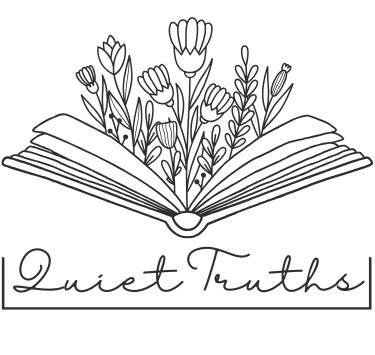

WHY DOES GOD ALLOW SUFFERING?
“For our light and momentary troubles are achieving for us an eternal glory that far outweighs them all.”
2 Corinthians 4:17


IF GOD IS GOOD AND ALL-POWERFUL, WHY DOES HE ALLOW SUFFERING AND EVIL?
It is one of the oldest and most haunting questions. If God is truly good and holds all power in His hands, then why is there so much agony in this world? Why do children suffer? Why do nations collapse under war and corruption? Furthermore, what about the injustice, illness, and grief that seem to roam freely, sometimes without answer or end?
This question does not come from cold logic but from pain. It comes from the place of holding the hand of someone dying too soon or watching cruelty flourish. It can arrive from the feeling of your own world break and asking Heaven, “Where were You?”
And for many, it becomes a quiet wall between them and God.
We need to face something here with clear eyes, even when it stings. God did not script the damage that scars this world; the bent that runs through us. Choices driven by greed, envy, fear, and self-need have shaped the ruin we see. Lift the lid on the wreckage within the human heart and you meet a will that longs for autonomy more than communion. In forgetting this, we miss the steady mercy that marks every decision of God for our good.
Think of the relationship between discerning parents and their children. When a parent says no or stops their child from doing something fun or exciting, it seems like they are always ruining their fun. But that resistance is based on love, not power.
A good parent sees what the child cannot: the danger hidden behind the thrill, the harm waiting just beyond the impulse. When they step in, it is of course not to rob their kid's joy, but to preserve what is deeper and more lasting. A parent draws a little adventurer down from a high branch or halts a reckless dash toward a cliff, and delight feels stolen. We read divine care the same way. Yet, the Father who sees farther shields joy rather than steals it, holding us where true life grows.
In the same way, God’s boundaries are not burdens but expressions of care. His refusals protect and His guidance preserves. In the same way that a child may not comprehend the necessity of refraining from climbing excessively high or running dangerously close to the edge, we frequently overlook the tenderness of God's commands. Usually, what feels like denial is actually deliverance.
Intimacy heals the independence that once drove our fall. Sadly the choice to step away from God introduced death, and everything that death carries with it: pain, disease, betrayal, fear. We lit the fire, and generations have lived in the smoke ever since.
This is the terrible dignity of human freedom: we were created with the power to choose, not as puppets on a string. We were given choice, and with it came the ability to love and the capacity to destroy—a gift that reflects God's image in us, even as it holds the potential to turn from Him.
THE DANGER OF FREE WILL
To create a being with free will is to accept the risk of rebellion. Science fiction movies reflect this truth: when a machine or robot is given the power to think independently, unpredictability follows. Once free will is granted, the creator no longer dictates the outcome. The risk that the creation might turn against its maker is the very price of true freedom. To revoke that freedom at the first sign of error would undo the gift itself.
And so, when we ask why God allows human choices, even those that bring destruction to lives, communities, and the planet, we must first confront our double standard. What would you do if your creation the robot runs wild?
If an intelligent machine of our own making questioned us and veered toward destruction, we would justify seizing control or shutting it down. Yet when God, with far greater wisdom and love, responds to the consequences of our sin, we are quick to accuse Him of cruelty. If He confronts sin, He’s called harsh. If He delays judgment, He’s seen as weak or indifferent. Either way, blame is placed on Him.
Instead of asking, "Why doesn't God stop evil?" perhaps we should ask, "Why do we keep choosing it?"
God didn’t simply restrain rogue beings. He stepped in, in the most personal and unexpected way. Christ entered the very pain we set in motion. He came into a world that turned Him away, and carried the weight of evil on His own shoulders. Why? Because He was not only compelled by love, He is love.
At the cross, Jesus did not merely witness suffering. He stepped into it and bore it fully. He did not stand at a distance from evil, but allowed Himself to be crushed by it so willingly in order that it would never have the final word.
He was mocked, tortured, and betrayed, and in the center of a broken world. And He bled in the middle of a broken world to offer healing that no system or strategy could bring. This is not the God of distant comfort. This is the God who comes close to dust and blood.
God is not distant in our suffering, nor is He unmoved by it. He weeps with those who weep, carries those who collapse beneath the weight of what they cannot understand, and promises a restoration so complete that even the deepest wounds will one day be made whole.
Yet, still, we ask; "Why doesn’t He end it all now? Why doesn’t He stop the horror with a single word?"
Because if He were to end evil today, He would also have to end us. To erase all darkness would mean judging it fully, without delay. And the truth is, that darkness doesn’t only live in warzones and prisons. It lives in the corners of our own hearts.
He waits because His mercy is wide, and He waits because His love is patient, longing not for anyone to perish, but that many would come to repentance.
Until then, we live in the tension: a world groaning under the weight of evil, and a God who stepped into that groaning to rescue us from it. But thank God, this will not last forever. A time is coming when He will restore all things. Until that day, His presence is our portion, His promise our anchor, and His wounds our hope.
Could it be that His justice is shaped by mercy, and His authority is expressed through love?
What if it isn't neglect but patience in the hope that we might turn to Him and live?
We cannot fully comprehend God's reasons for His actions, just as a robot cannot understand all the factors behind our decision to terminate a rogue android.
As Rick Rood observed, "Creatures free to love God must also be free to hate or ignore Him. Creatures free to follow His will must also be free to reject. And when people act in ways outside the will of God, great evil and suffering is the ultimate result." It comes with the territory.
Hell is that place where God's presence is rejected, a residence where the consequences of abandoning His goodness and protection become apparent in all severity and form.


“For I consider that the sufferings of this present time are not worth comparing with the glory that is to be revealed to us.”
Romans 8:18
“The Lord is close to the brokenhearted and saves those who are crushed in spirit.”
Psalm 34:18
“He will wipe away every tear from their eyes. There will be no more death or mourning or crying or pain.”
Revelation 21:4


Still, we ask why. Why doesn’t He end it all now? Why doesn’t He stop the horror with a single word?
Because if He were to end evil today, He would also have to end us.
To erase all darkness would mean judging it fully, without delay. And the truth is, that darkness doesn’t only live in warzones and prisons.
It lives in the corners of our own hearts.
Suffering Was Never Part of the Original Design
God created the world good. There was no pain, loss, or death in the beginning. Humanity was made for life, relationship, and peace. Suffering entered through rebellion. When humanity chose to walk away from God’s ways, the result was a broken world. Sin fractured everything and our relationship with God, with each other, and even creation itself. What we see now is not the world as God intended it to be.
Human Choice Has Real Consequences
God gives people the ability to choose. Love cannot be forced. If we are free to love, we are also free to harm. Much of the suffering in the world is caused by human decisions including greed, violence, betrayal, and neglect. God does not cause these things. He allows freedom, even when it leads to pain. Without that freedom, we would be controlled, not human.
God Is Not Distant from Our Pain
God does not watch from a distance. He entered into our suffering. Jesus lived among us, felt our sorrows, and experienced deep pain. He was mocked, rejected, and crucified. He knows what it is to weep. He knows what it is to be abandoned. God’s answer to suffering was not a theory, or good advice. It was a person. In Christ, God came near.
Suffering Can Wake Us Up
Sometimes comfort dulls the heart. When everything feels easy, we stop asking deeper questions. Pain can make us search for what really matters. It can strip away illusion and push us toward truth. Suffering does not always lead to faith, but it can create space for it. In the middle of loss, many find God more clearly than they ever did in ease.
This Is Not the End of the Story
The Bible speaks of a time when God will wipe every tear from our eyes. There will be no more death, mourning, or pain. What is broken will be healed. What is lost will be restored. Until that day, we live in a world that groans for redemption. God has promised that He will make all things new. Our present suffering will not last forever.
God Brings Good Out of Suffering
Even in the darkest places, God is able to work. He brings beauty from ashes. He strengthens faith, deepens character, and draws people to Himself. This does not make pain good. Suffering is still hard and often unfair. Yet nothing is wasted. God is able to redeem what is broken and use it for a greater purpose.
We Do Not See the Full Picture
We often want answers that make sense of everything. Sometimes those answers do not come. There are losses too deep, tragedies too heavy, wounds that defy explanation. In those moments, we trust a God who sees more than we do. His wisdom is far beyond ours. He does not owe us full understanding, but He gives us Himself.
He Is With Us In It
God never promised to shield us from all pain, but He promised to be with us through it. He walks with the weary. He comforts the broken. He listens to every cry. When we cannot see the way forward, He stays near. His presence does not remove all suffering, but it gives us strength to endure it.
CLOSING REFLECTIONS


Quiet Truths is based on the Gold Coast, Australia and was established in 2017
© 2026 Quiet Truths. All rights reserved
FAITHFUL SAINTS
